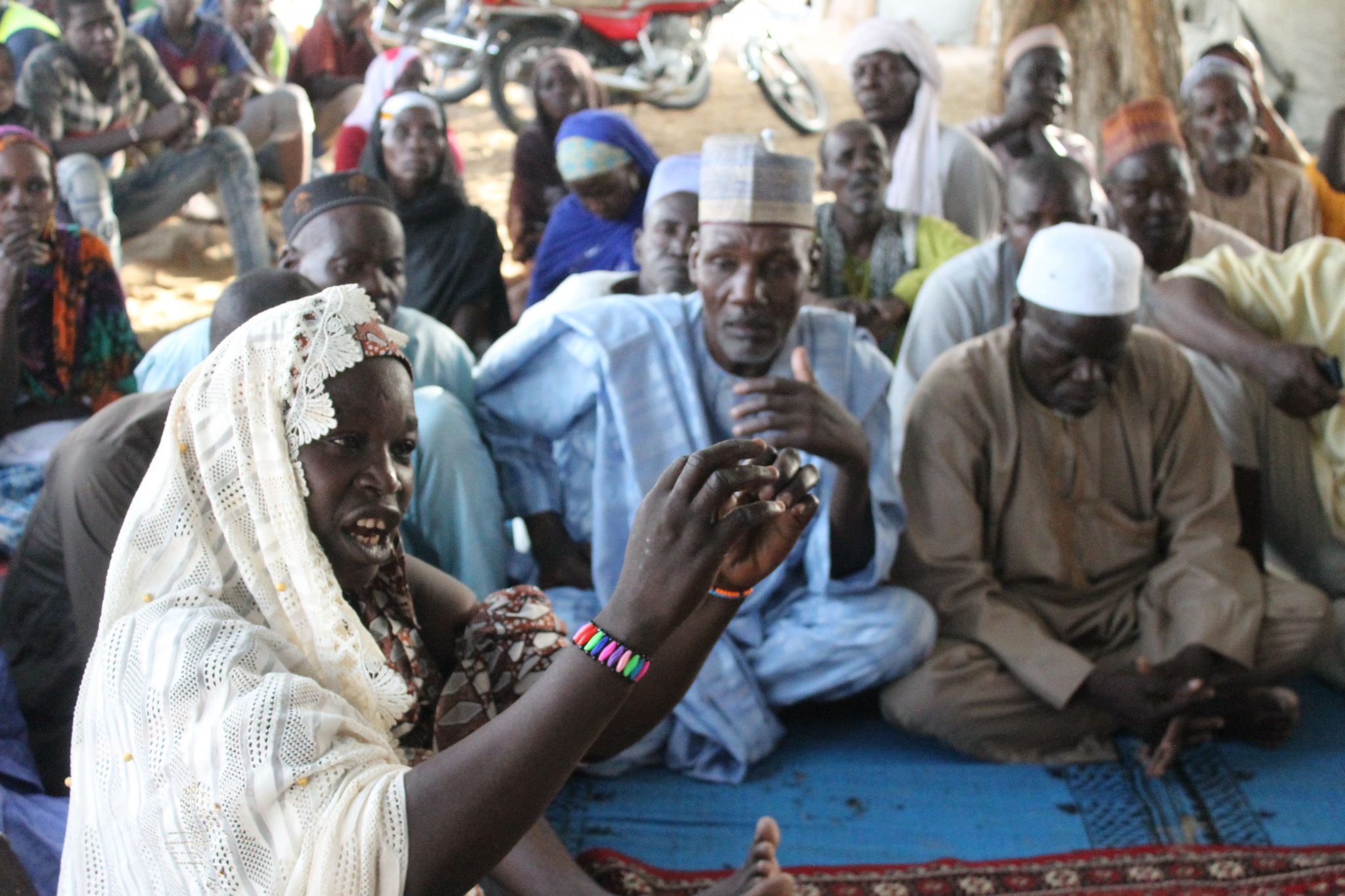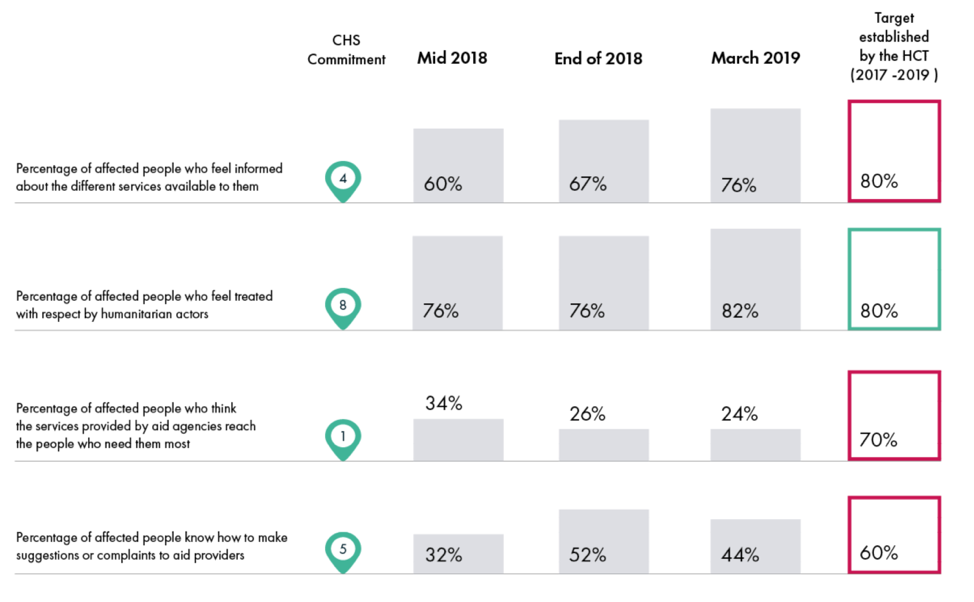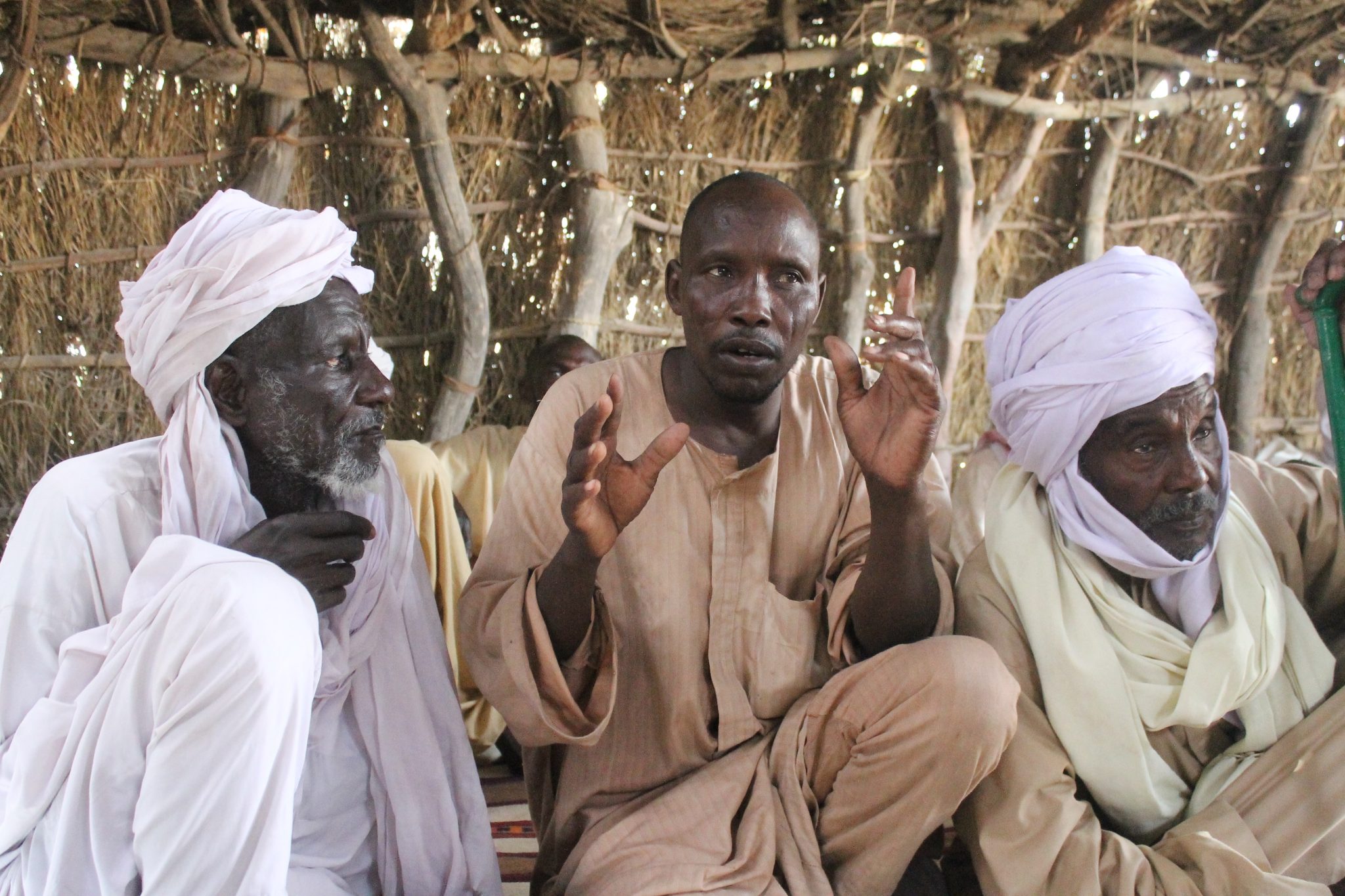Strengthening Humanitarian Accountability in Chad
A new report from the CHS Alliance and Ground Truth Solutions reveals that in Chad only 8% of people affected by crisis surveyed believe that aid providers take their opinions into account…
(16 September 2019) From chronic poverty to mass displacement, Chad has faced several humanitarian crises during the past three decades. The country’s current emergency is considered one of the most under-reported in the world. Humanitarian responses in Chad continue to be saddled with a wide range of challenges. In this complex context, Ground Truth Solutions (GTS) and the CHS Alliance provide essential information to the agencies working in Chad about how affected people and humanitarian staff perceive assistance, as well as the relationship between affected groups and aid providers.

Meeting with the president of the refugee women association, Dar Es Salam Refugee camp, Lac region (June 2019, Chad) © Guillaume Pocard, Ground Truth Solutions
A paradigm shift in accountability
Accountability has increasingly become a key topic for humanitarian responders in Chad. This was demonstrated, in part, by the prioritisation of perceptual indicators in the 2017-2019 Humanitarian Response Plan (HRP). Time and time again, we see that the perceptions of affected people – including refugees, returnees, IDPs and host communities – about the aid they receive are a crucial component of accountability. The 2018 Ouaddaï incident clearly demonstrates the negative consequences of not considering the views of those on the ground.
With support from Sida (Swedish International Development Agency), the CHS Alliance, Ground Truth Solutions, and the Chad Humanitarian Country Team (HCT) are working together to change this. Together, we run a project collecting feedback from affected people, aid agency field staff and local partners to systematically monitor the implementation of the HRP against the Core Humanitarian Standard’s (CHS) Nine Commitments. To help track the HRP 2017-2019 strategic objectives through the eyes of those affected by crises, we developed perception indicators aligned to the CHS. GTS then collected and analysed perception survey results.
So, what do affected people really think?
The CHS Alliance and GTS’ report on the findings of the third round of data collection in Chad is now available.
1,641 affected people in the Logone Oriental, Lac, and Ouaddaï regions of Chad were interviewed between March and April 2019. The graph below highlights the evolution of perceptions about aid among affected people over two years of data collection.

The data here shows that there are clear signs of progress for several key perceptual indicators, such as feeling informed about available aid and being respected by aid workers. However, some areas are in need of improvement: according to the latest findings, only eight per cent of affected people surveyed believe that aid providers take their opinions into account.
Recommendations from the field
The fact that affected people do not think their views are considered in the humanitarian decision-making process further demonstrates the need for aid agencies to solidify their commitments on accountability. To address the missed targets the CHS Alliance has taken forward a number of capacity development activities. These included workshops for clusters on AAP action planning; complaint and response mechanisms; individual visits to organisations to discuss specific AAP challenges and needs. Community leaders, humanitarian field staff, UN agency representatives, and cluster leads met for a series of consultation sessions between June and August 2019. These groups made the following recommendations:

Other recommendations from the latest report include diversifying communication channels and increasing the participation of community leaders in decision-making and planning processes.
The Chad example demonstrates that accountability is not only a theoretical concept but is, in fact, an essential element that should be integrated at every step. To shift the existing power balance between affected people and humanitarian actors, it is necessary to reconsider the role of affected people in the humanitarian response. The CHS Alliance and Ground Truth Solutions urge humanitarian actors to adopt a people-centred approach where the voices of affected people are at the front and centre of policy and programming.

Meeting with community leaders, Liwa IDPs camp, Lac region (June 2019, Chad) © Guillaume Pocard, Ground Truth Solutions
Next steps
Our findings and recommendations are now informing HRP decision-making and strategic planning, marking the humanitarian community’s commitment to strengthening accountability in Chad. Currently, the CHS Alliance and partners are in discussions with the Chad HCT to ensure that perceptual indicators are included in the 2020 HRP. A fourth round of data collection is also scheduled for the end of September 2019. This round will get the views of both affected people (through face-to-face surveys) and humanitarian staff (through an online survey).
To see results from all rounds of the project’s data collection, or for more information regarding the Strengthening Accountability in Chad project, please visit the GTS website.
